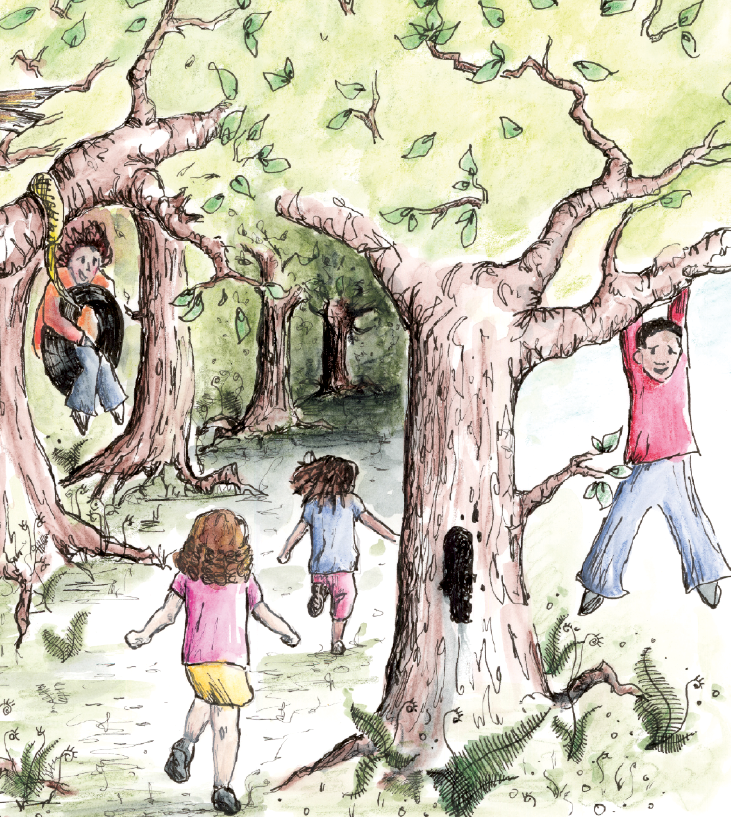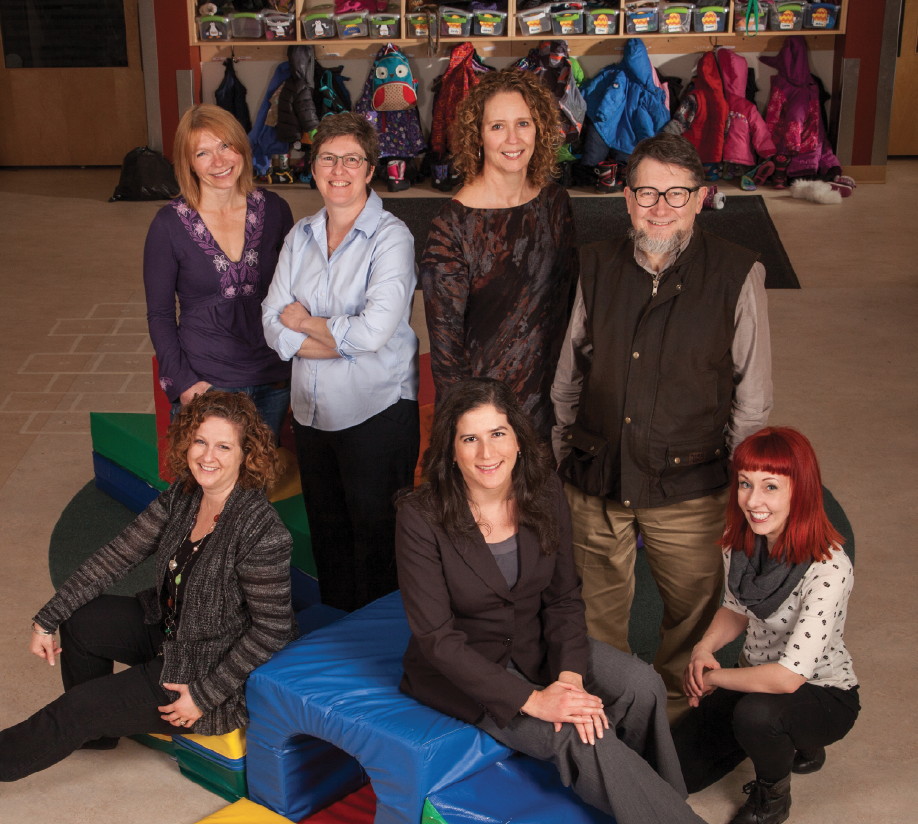
The way we study young people is taking on a whole new meaning at the University of Lethbridge, where researchers are using a holistic approach to understand their experiences, development and challenges.
The Institute for Child and Youth Studies, or I-CYS, is a research institute that is using a multidisciplinary lens to examine what children and youth mean as social, demographic, artistic, legal and existential categories. Launched in October 2012, and one of only a small handful of such initiatives worldwide, the institute involves U of L scholars from the humanities, social sciences and sciences collaborating to gain a greater understanding of child and youth matters.
“Cross-disciplinary work is especially important for understanding young people,” says I-CYS co-director Dr. Kristine Alexander, a Tier 2 Canada Research Chair in Child and Youth Studies and an assistant professor of history. “The academic study of history, like many other fields, was initially based on the assumption that young people’s thoughts and experiences were less important than those of adults. Challenging this assumption by working collaboratively is at the heart of what I-CYS is all about.”
Alexander began working at the U of L in July 2013, and says she has been impressed by the creativity and passion of her colleagues. The concept for I-CYS emerged from an international conference on the state of child studies held at the U of L in May 2011. Childhoods Conference: Mapping the Landscapes of Childhood was a multidisciplinary three-day event that focused on new research results, policy approaches and theoretical paradigms in the field of child and childhood study. Scholars from the U of L and other institutions in disciplines such as education, sociology, English and neuroscience joined
with child and youth practitioners to discuss themes such as gender, globalization, technology and adolescence.
“If you only talk to people who know the same thing as you, your knowledge never changes. Having people from different disciplines engage with each other was a way to build on and exchange what we know about the young,” says I-CYS co-director Dr. Jan Newberry, Chair of the Department of Anthropology at the U of L and one of the conference organizers.

The diverse and provocative ideas that emerged from the conference prompted Newberry and her colleagues to explore developing a full-fledged multidisciplinary research initiative at the University focused on childhood studies. After a year and a half of planning, which included securing the Canada Research Chair, the idea came to fruition. Today, seven U of L faculty members from the disciplines of history, anthropology, literary studies, psychology, neuroscience and education lead the institute.
“I-CYS values curiosity and the exploration of ideas, just like the play of a child,” says Newberry. “As we talk from a variety of perspectives – the archives, the classroom, the field, the book, the laboratory – about what it means to try to study and understand the young, we discover hidden paths, tangled woods and interesting play spaces.”
Further, Newberry explains, I-CYS aims to be an idea generator (just like any entrepreneurial enterprise) – only the payoff here is better questions, especially those that aren’t usually asked because researchers are trapped in disciplinary silos.
To build on the momentum of the original conference, the institute is hosting an exchange of ideas with a selected group of national and international scholars and practitioners on campus this spring. The workshop, Risk and Resilience: Conjoined Categories with Multiple Mothers, will explore the dimensions of the potential dangers to youths and their responses to it, with the aim to encourage a more creative approach to research dissemination that will help research reach a wider, more general public.
“We see the workshop as the beginning step to creating a truly interdisciplinary approach to understanding young people,” Alexander says.
Through the playful exploration of new strategies for conducting research, and daring to think differently about how work is conducted within one’s own field, Alexander and Newberry hope participants will develop a whole new mindset to think about risk and resilience, fully embracing the advantages of a multidisciplinary perspective, and so pave the way for a truly interdisciplinary approach to the study of child and youth.
U of L students are also helping to advance the institute’s objectives to better understand the lives of young people from a variety of perspectives. The institute holds “friendly feedback” sessions where students from different academic areas gain diverse input on their child- and youth-related research projects from the I-CYS directors. As well, the institute is recruiting a post-doctoral fellow for a one-year term starting this September. Over the longer term, I-CYS will introduce a minor option in child and youth studies at the University and, eventually, undergraduate and graduate degrees in the subject.
A key part of the institute’s work involves pursuing a broad mix of partnerships to explore specific issues of childhood. To that end, it is exploring ways to engage with different groups within the University, including Complex Social Change, an interdisciplinary research program exploring how social change takes place; and the Centre for Oral History and Tradition, which is focused on advancing the practice of oral history.
Outside of the University, the institute will work to connect with local organizations on child and youth research. Opokaa’sin Early Intervention Society, along with its executive director, Tanya Pace-Crosschild (BSc í98), was the first partner in research developed by I-CYS. Along with Opokaa’sin, the Galt Museum & Archives also made important founding connections with the institute, and there is a lot of excitement about the potential of joint projects with both organizations.
An advisory committee of researchers, community agencies, First Nations, Métis and Inuit groups, and undergraduate and graduate students is helping to guide the institute’s activities, which will also include another international conference in 2015.
“There is a sense that there is a need to pay attention to children and the young as an interesting crossroads in knowledge,” Newberry says. “The institute is creating exciting opportunities for us as researchers to think about how we can extend our work across disciplines and into the community.”
This story appears in the Spring 2014 edition of SAM. For a look at the full magazine in a flipbook format, follow this link.
